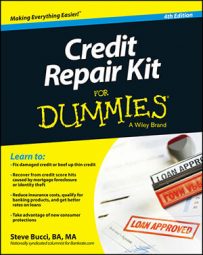Between misinformation, stress, and plain old denial, reading the writing on the wall can be difficult when you are or are soon to be in trouble with your mortgage. Lenders don’t make it any easier. Check out these tips for help.
Know when you’re in trouble
If you are late on a single payment, you can just make it up. Sometimes there is fee or a penalty. If you are more than 90 days late and attempt to make a payment, there is an excellent chance that your money will be refused. You may need to make up all your payments at once to get any payment applied to your mortgage.
To further complicate matters as only bankers and lawyers can, the 90-day payment cliff does not include your grace period.
Know how your state’s laws treat foreclosures
It is important to know how your state’s laws work so that you don’t inadvertently cross a line or miss an important date. Check out summaries of the laws in all states.
Nonrecourse or recourse
If your lender is foreclosing on your mortgage, whether you live in a recourse state or a nonrecourse state makes a big difference. In general, if you live in a nonrecourse state, you can’t be held liable for any deficiency between the amount you owe and the amount your home sells for. If you live in a recourse state, the lender may get a deficiency judgment against you in court.
Judicial or nonjudicial
It is important to know whether your state handles foreclosures on a judicial or nonjudicial basis. If you live in a nonjudicial foreclosure state, your lender does not have to go to court in order to foreclose on your home. In judicial states, foreclosures go through a court. These are called judicial foreclosures and may take longer to finalize.
Should you walk away?
Some borrowers choose to stop making payments because they see their home as just another investment. Walking away is known as a strategic default.
Potential drawbacks to strategic default include deficiency judgments, significant credit score damage, problems buying or renting in the future, and stigma in the eyes of others.
Work with the lender to exit
Rather than go through a long and expensive foreclosure process in order to obtain title, the lender agrees to accept the deed to the property. This option may also incur a deficiency judgment for the difference between the fair market value of the property and the total debt owed.
Another option in this category is a short sale, which involves selling your home for less than what you owe. If you choose this option, you may be subject to a deficiency judgment, depending on the terms you work out with your lender and the laws in your state.
Stay the course
If you decide to do all you can to stay in your home, several courses of action are open to you:
FHA Short Refinance
Home Affordable Refinance Program (HARP)
Loan modification/refinancing
Tighten your spending to stay in your home
Making a budget is basic but effective. Begin by listing all your expenses and then list your income. Look carefully at both sides of the equation, make some cuts to expenses, and look for ways to add to your take-home pay or increase your income.
Prioritize your spending to build cash
No matter what you choose to do in the event of a mortgage crisis, you’re going to need some cash. It may be to pay an arrearage.
Want some help with creating a spending plan? Try a nonprofit consumer credit counseling agency member of the National Foundation for Credit Counseling or the Association of Independent Consumer Credit Counseling Agencies.
Lessen the damage to your credit
In a nutshell, if you stiff your mortgage lender with a loss in the form of a short sale or foreclosure, your credit will take a much bigger hit than if you come to an agreement to repay or forgive any deficiency.
For a person with decent credit and a FICO score in the 720 range, the difference in credit score deduction between a short sale with a deficiency and one without can be more than 50 points.
Know who to call
The worst thing you can do is to remain silent, which could leave the bank no other option than to take legal action.
The best thing you can do is to open your mail and speak to your mortgage servicer at once. You should also contact an independent HUD-approved mortgage counselor at Hope Now (or 888-995-HOPE) or your state housing agency. Avoid foreclosure-prevention companies like the plague.
Beware of scams
Here are some quick scam signs to watch out for:
Never pay a fee in advance. The best help is free.
Never believe someone who guarantees that they can stop your foreclosure.
Be wary of anyone who contacts you and offers to help.
Never hand your mortgage money over to anyone other than your mortgage servicer.
Beef up your credit with lines of credit
Before your credit suffers a drop from the fallout of missed payments, open some new accounts to establish new lines of credit and make any big purchases you are going to need to finance (like a car) in the next few months.
Once you default on your mortgage, you won’t have access to new credit for a long time. Stocking up on credit now makes sense if you can use it wisely.
Consult an attorney
Only an attorney can give you sound legal advice, so before your mortgage crisis gets too far along, spend the money to get a competent assessment of where you stand and what the law can do to help.
A good lawyer who does a lot of foreclosure-prevention work can sometimes work minor miracles, maybe even delaying foreclosure for years.

